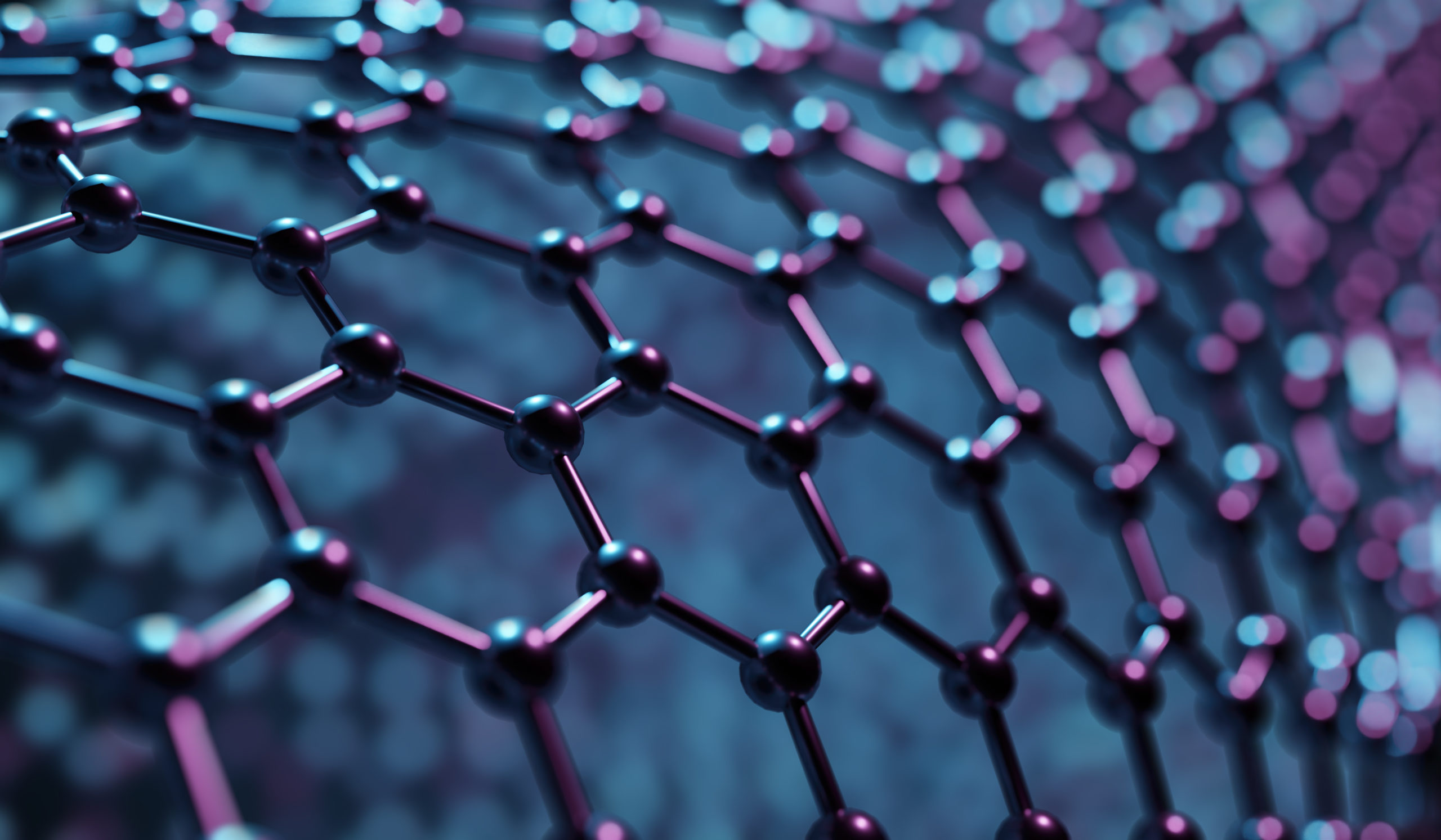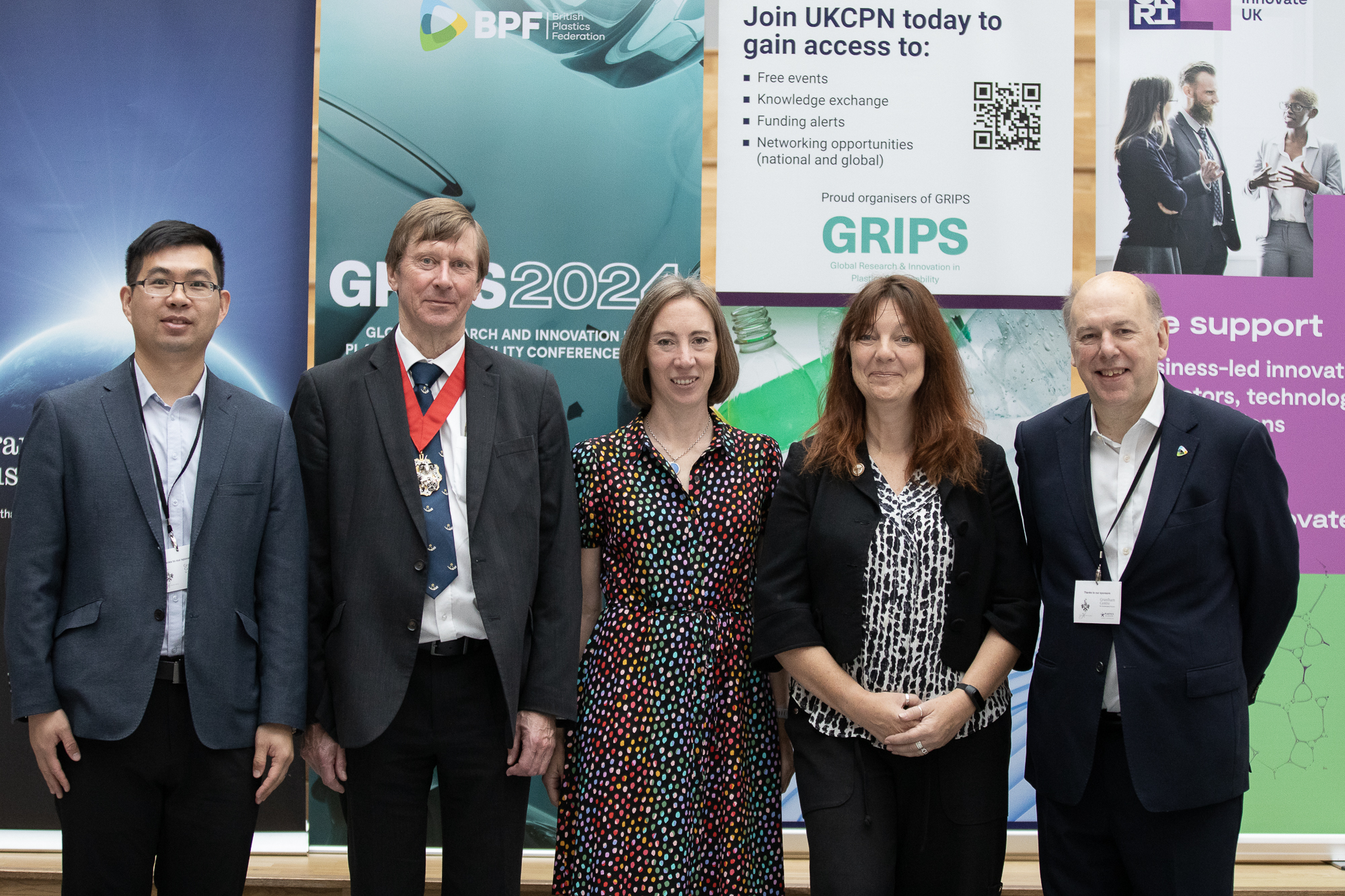2D Materials
Graphene and other novel two-dimensional (2D) materials have sustained strong interest from academia and industry owing to their unique combination of material properties. These properties, which include strength, thermal and electrical conductivity, are found to be superior to those exhibited by other advanced materials.
2D Materials
|Experts
|Funding Opportunities
|Case Studies
|Events
|News
|Perspective
|Programmes

Moreover, for some applications, these 2D materials can potentially be cheaper than their incumbents (e.g. copper, silicon), as they are obtained from coal or other inexpensive carbon sources. Due to their extraordinary properties, graphene and related 2D materials have the potential to generate truly disruptive technologies and products.
Since graphene was first isolated in 2004 at the University of Manchester, the UK has led major breakthroughs in 2D materials processing and applications. The market for these applications can potentially be large and see rapid growth. However, developments are still in their early stages with the successful ones mainly focused on incremental substitution rather than unique application routes.
Early successes with graphene processing have encouraged increased research activity into non-carbon 2D materials (e.g. molybdenum disulfide and hexagonal boron nitride), as these exhibit other outstanding properties, such as band gaps which make them attractive for semiconductor applications. One of the major attractive properties of these 2D materials and graphene is that they can be easily stacked together, creating different heterostructures (Van der Waals heterostructures) and thus allowing unique properties to be designed. Due to similarities in physical phenomena and processing methods, research into non-carbon 2D materials continue to benefit greatly from learnings and resources invested in graphene research and infrastructure. For this reason, the commercialisation of non-carbon 2D materials is expected to be propelled by graphene successes.
Related Opportunities
Horizon Europe 2026-27: Digital, Industry and Space (Cluster 4)
Various closing dates from Mar 2026 to Sep 2027
Topics available under Horizon Europe's Cluster 4 programme for 2026-27, with a total budget of €1.5bn
More Information
European Innovation Council: Pathfinder, Transition, and Accelerator 2026
Opens: 01/01/2026 Closes: 28/10/2026
Funding opportunities worth over €1.4 billion for strategic technologies and scaling up companies, with grants of up to €4m.
More Information
Eurostars call for projects – call 10, closing March 2026
Opens: 16/01/2026 Closes: 19/03/2026
Up to €360,000 for SMEs performing innovative R&D as part of a consortium with one or more organisations from other Eurostars countries.
More Information
Related Events and Recordings
Wed
30
Jul
2025
Wed
19
Feb
2025
Thu
11
Dec
2025
Opportunities in the 2026 European Innovation Council (EIC) Pathfinder Scheme
14.00 - 15.00 | Online



